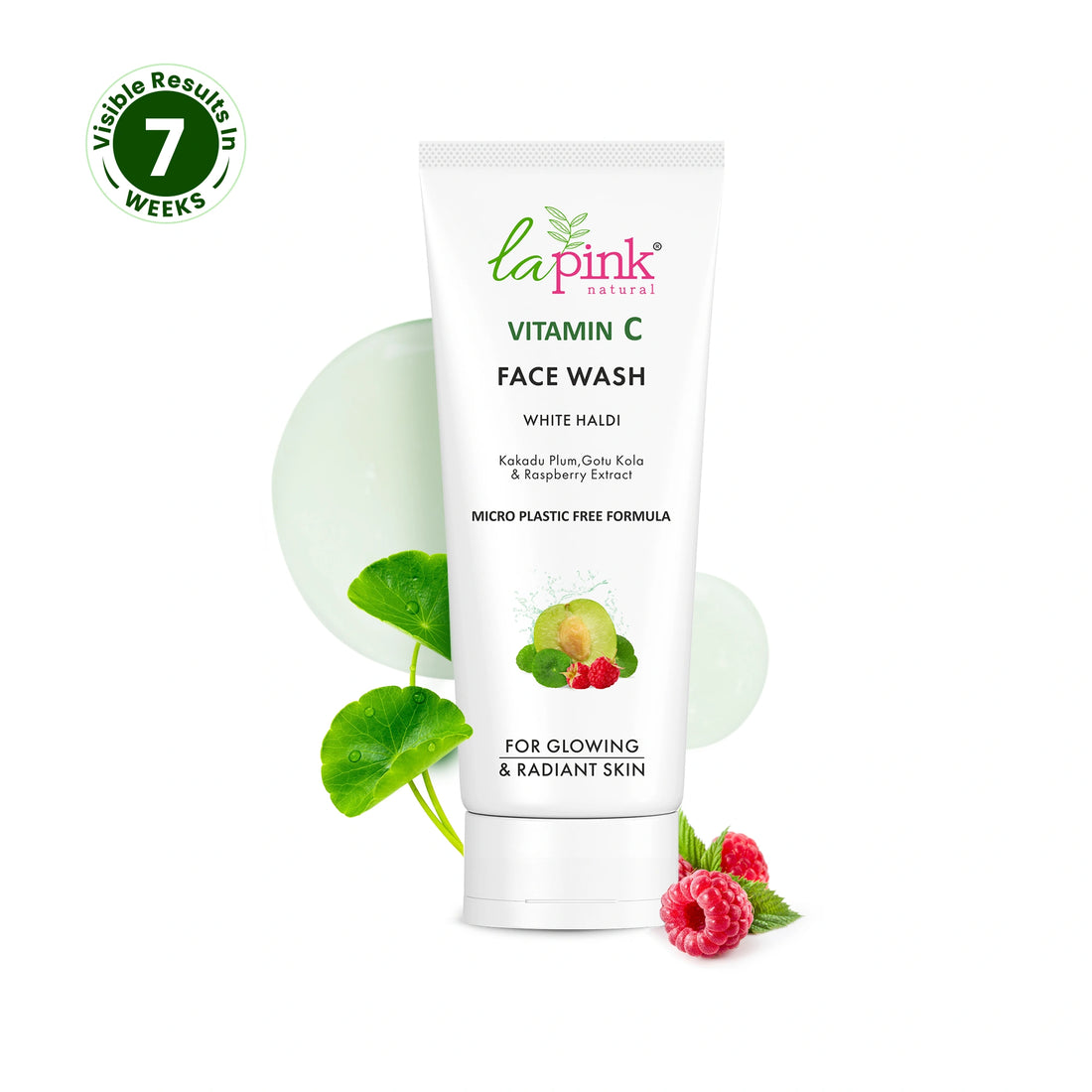Benefits of Glycolic Acid for Skin
Glycolic acid, is one of the most popular AHAs with its ability to transform your skin for a radiant glow. It exfoliates, brightens skin, treats acne, and a lot more. Let’s take a look at the multiple benefits offered by this magical ingredient.
1. Exfoliation of Dead Skin Cells
Glycolic acid is a chemical exfoliant that helps in removing the outermost layer of the skin. It exfoliates skin by dissolving dead skin cells bonds. This helps in getting fresh and smooth skin under those dead skin cells. A good exfoliation helps reduce acne breakouts and unclog pores for improved skin texture.
2. Brightening Skin
With proper skin exfoliation and shedding of dead skin cells, glycolic acid helps treat hyperpigmentation. This AHA also enables the treatment of sun spots and melasma which helps achieve glowing and radiant skin with regular use in the right concentrations.
3. Minimize Fine Lines and Wrinkles
Glycolic acid is a powerful ingredient in many skincare products that helps dissolve bonds between dead blood cells and boost collagen production. It has been studied to reveal that glycolic acid has the ability to enhance skin elasticity and reduce the appearance of wrinkles and fine lines. It also aids in skin cell renewal which brings out an even skin tone and smoother skin surface.
4. Enhanced Product Absorption
Many studies have established that glycolic acid has the ability to remove dead skin cells and provide a smooth skin surface. Since the barrier of dead skin cells is gone, glycolic acid makes way for other active ingredients to penetrate better into the skin cells for increased efficiency and visible changes. What works in its advantage is the fact that it is the smallest-sized molecule in the AHA family.
5. Prevention of Acne Breakout
One of the primary reasons why people with acne-prone skin love glycolic acid-based skincare products is its ability to treat acne and prevent major breakouts. Glycolic acid has the ability to inhibit the production of comedones which helps deal with inflammation and redness. This helps curb the acne breakouts.
How do Microplastics Impact the Efficiency of Glycolic Acid?
Often found in skincare formulations, microplastics have been known to have counter effects on the efficiency of ingredients used. The biggest disadvantage of having microplastics in skincare products is that it forms a layer on the skin which creates a barrier for active ingredients to go deep into the skin cells. This disruption causes skin sensitivity and is one of the major reasons for breakouts. Not only this, the presence of microplastics in skincare formulations has proven to reduce the efficiency of the active ingredients by interfering with their chemical composition.
La Pink is dedicated to providing the best in the skincare industry with their 100% microplastic-free formulations. These skincare ingredients and products promise to work effectively on the skin for visible results.
How to Include Glycolic Acid in Your Skincare Regime?
If your skin breaks out frequently then introducing Glycolic acid-based products may actually help you. In fact, if you suffer from sun damage, a glycolic acid-infused skincare regime will benefit you. This is what you can do:
- Choose the products that have glycolic acid content of 5–10%. Start slowly to understand how your skin reacts to it.
- It is advisable to use Glycolic acid-based products in your nighttime skincare routine to avoid increased sun sensitivity.
- Do not forget to apply moisturizer afterward. You have to ensure that hydration is locked in properly to avoid skin irritation.
- It goes without saying, that if you choose to use glycolic acid-based products in the daytime, you cannot miss out on sunscreen.
- Dermatologists recommend not using glycolic acid with other potent active ingredients such as Vitamin C and Niacinamide. It may cause skin irritation.
Glycolic acid has been a star ingredient in the skin care industry for a while. It is an effective ingredient that exfoliates skin and works on brightening skin tone. For anyone struggling with hyperpigmentation, acne, breakouts, or just wanting to ensure smooth skin texture, glycolic acid could come in handy. Add it to your skincare regime in the right concentration and you’ll thank it for glowing, radiant skin.



































































